Rob Bignell's Blog, page 316
November 15, 2014
Every word I write is another stroke that takes me to the shore of a completed book
Any journey 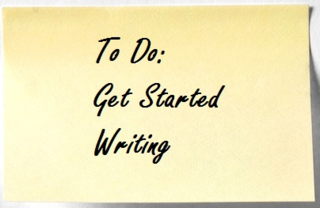 you set out on requires time and at least some hard work. No matter how difficult such travels may be, however, the destination is always reachable. Wrong turns may be made along the way or a cliff then a thicket of thorns may stand between the starting point and the goal, but ultimately with some careful thought, a little sweat, and a never-say-quit attitude, you can overcome those setbacks and obstacles.
you set out on requires time and at least some hard work. No matter how difficult such travels may be, however, the destination is always reachable. Wrong turns may be made along the way or a cliff then a thicket of thorns may stand between the starting point and the goal, but ultimately with some careful thought, a little sweat, and a never-say-quit attitude, you can overcome those setbacks and obstacles.
In many ways, writing a story or a book is much like a journey in which you are out at sea on a rowboat. Your destination – a palm-fringed island or the published novel fresh from the printing press – beckons in the distance. Though making a straight line for that objective seems sound, the endpoint is farther away than it initially appears. So you row a little harder.
Sometimes rough waves and the receding tide push you back and deeper into the waters. As a writer, this may be the equivalent of rewriting a chapter, or restructuring a subplot, or redeveloping a character, stretches you’ve already covered.
In the rowboat, you must remain persistent, not allow the ocean swells to sink you; so as a writer you must not allow the editing of a piece or the thoughts of a beta reader overwhelm you and keep you from believing in your goal.
Instead you must concentrate solely on rowing…on writing…of dipping oar into water…of pressing pen against paper. After a while, you look up and realize that landing is indeed closer.
And then, suddenly, the oars no longer can go as deep as they did before…and there’s only a few paragraphs left to write. You’ve reached the sand rising to the beach…the final page of your tale.
At last, you can you stand triumphant.
Need an editor? Having your book, business document or academic paper proofread or edited before submitting it can prove invaluable. In an economic climate where you face heavy competition, your writing needs a second eye to give you the edge. Whether you come from an urban area like California's Inland Empire or a rural area like Loving County, Texas, I can provide that second eye.
Amazon.com Widgets
November 14, 2014
What are 'book specs' on a press release?
Q: While  reading a guide to marketing one's book, the author talked about including “book specs” in your press releases. She didn’t explain what “book specs” are, though! Can you tell me?
reading a guide to marketing one's book, the author talked about including “book specs” in your press releases. She didn’t explain what “book specs” are, though! Can you tell me?
“Book specs” are the following about your book: date it was published; publisher; ISBN; price; pages; cover (hard or paperback); trim size; website URL. It usually appears in a bulleted list that appears near the end of your press release. You should be able to get most of this information from your Amazon.com sales page for the book.
Related articles:
g How to write a press release for your book
g Create media kit to promote your book
Need an editor? Having your book, business document or academic paper proofread or edited before submitting it can prove invaluable. In an economic climate where you face heavy competition, your writing needs a second eye to give you the edge. Whether you come from a big city like Fort Worth, Texas, or a small town like Tightwad, Missouri, I can provide that second eye.
Amazon.com Widgets
November 13, 2014
Attract attention by adding ‘shout line’ to cover
When designing 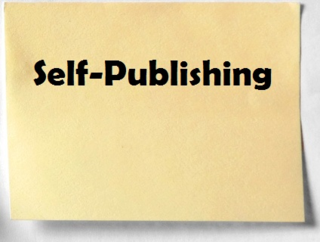 your book cover, consider adding a shout line.
your book cover, consider adding a shout line.
A shout line is a compelling phrase or sentence that aims to intrigue the reader. Some good examples include: “When obsession takes over”; “I thought he was harmless. I was wrong”; and “In spae, no one can hear you scream”. While the shout line alone may not sell the book, it hopefully will get potential buyers to read the full blurb or a few pages from the story.
Shout lines tend to be short and are in some way linked to the story’s central problem or major conflict. Often they appear as a question. A great shout line sticks with the reader.
As most of today’s book sales are online, simplicity rules in book cover design. Hence, many self-published authors eschew the shout line. Still, a shout line works well when the book is printed as a paperback and sold in bookstores. In any case, a good book cover desginer should be able to fit in a shout line even on books sold only online where covers often appear as thumbnails.
Need an editor? Having your book, business document or academic paper proofread or edited before submitting it can prove invaluable. In an economic climate where you face heavy competition, your writing needs a second eye to give you the edge. Whether you come from a big city like Houston, Texas, or a small town like Chicken, Alaska, I can provide that second eye.
Amazon.com WidgetsRelated articles
 Forewords, prefaces and introductions
Forewords, prefaces and introductions
November 12, 2014
No more grappling: Clenched vs. clinched
If only 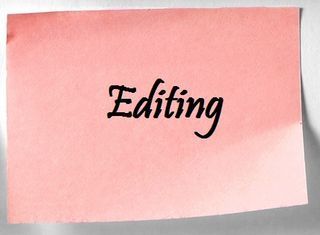 some writers could get their hands arounds these two words!
some writers could get their hands arounds these two words!
Clenched means any of the following:
g To curl one’s fingers into a tight ball, as in Jane clenched her fists when the airline told her she’d been bumped from the plane for Los Angeles.
g To press one’s teeth together in anger, as in Dawn clenched her teeth when the airline told her the flight to New York City was delayed.
g To grasp something hard with the hands or teeth, as in Melissa clenched the her suitcase handle when the flight attendant said she’d have to check it for her flight to Chicago.
Clinched means to confirm or settle, as in Laurie clinched the business deal with the San Francisco company.
An easy way to remember the two: Clench has to do with hands and teeth, usually responding in anger, while clinch indicates something that will bring happiness occurred.
Need an editor? Having your book, business document or academic paper proofread or edited before submitting it can prove invaluable. In an economic climate where you face heavy competition, your writing needs a second eye to give you the edge. Whether you come from a big city like Portland, Maine, or a small town like Bantam, Connecticut, I can provide that second eye.
Amazon.com WidgetsRelated articles
 How many words is a novella?
How many words is a novella?
November 11, 2014
What are examples of ‘concrete details’?
Q: A beta 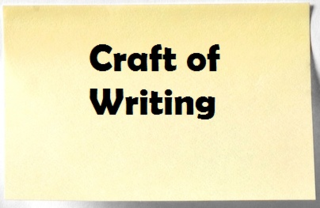 reader for my manuscript wrote on it that I need more “concrete details.” What did she mean?
reader for my manuscript wrote on it that I need more “concrete details.” What did she mean?
Concrete details appeal to our five senses. All of us live in a world in which we constantly see, hear, smell, taste and touch and so also should our stories’ characters. So rather than describe a city as forlorn, you might describe the sky as overcast, the boarded windows of closed stores, the stench of garbage and urine as passing an alley, the grime on buildings as one leans against a wall, and so on.
Related articles:
g Use concrete details to make writing more vivid
g How to make your writing more vivid
Need an editor? Having your book, business document or academic paper proofread or edited before submitting it can prove invaluable. In an economic climate where you face heavy competition, your writing needs a second eye to give you the edge. Whether you come from a big city like Dallas, Texas, or if you come from a small town Why, Arizona, I can provide that second eye.
Amazon.com Widgets
November 10, 2014
How many words is a novella?
Q: A 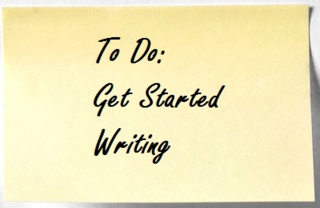 writing contest I was thinking of entering says it accepts “novellas”; how long is a novella?
writing contest I was thinking of entering says it accepts “novellas”; how long is a novella?
There’s no hard or fast rule about how many words makes a novella. It’s largely a subjective matter for which editors and publishers assign arbitrary numbers based on their needs and available space. Word counts used in science fiction’s Hugo and Nebula contests list a novella as 17,501-40,000 words, though. Sometimes editors and contests go as low as 7,500 words, however.
Related articles:
g Short stories vs. novellas vs. novels
g Publish your short stories in an anthology
Need an editor? Having your book, business document or academic paper proofread or edited before submitting it can prove invaluable. In an economic climate where you face heavy competition, your writing needs a second eye to give you the edge. Whether you come from a big city like New York, New York, or a small town like Bantam, Connecticut, I can provide that second eye.
Amazon.com Widgets
November 9, 2014
Five Great Quotations about Outlining
“I always 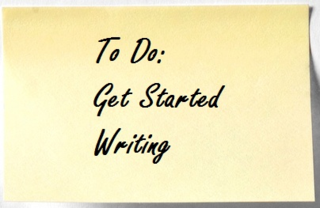 have a basic plot outline, but I like to leave some things to be decided while I write.” – J. K. Rowling
have a basic plot outline, but I like to leave some things to be decided while I write.” – J. K. Rowling
“I write on big yellow legal pads – ideas in outline form when I’m doing stand-up and stuff. It’s vivid that way. I can’t type it into an iPad – I think that would put a filter into the process.” – Robin Williams
“If you do enough planning before you start to write, there’s no way you can have writer’s block. I do a complete chapter by chapter outline.” – R. L. Stine
“Animals outline their territories with their excretions, humans outline their territories by ink excretions on paper.” – Robert Anton Wilson
“I am a writer who works from an outline. What I generally do when I build an outline is I find focal, important scenes, and I build them in my head and I don’t write them yet, but I build towards them.” – Brandon Sanderson
Need an editor? Having your book, business document or academic paper proofread or edited before submitting it can prove invaluable. In an economic climate where you face heavy competition, your writing needs a second eye to give you the edge. Whether you come from a big city like Raleigh, North Carolina, or a small town like Strong, Maine, I can provide that second eye.
<A HREF="http://ws-na.amazon-adsystem.com/widg... Widgets</A>Related articles
 Why you can't get your outline into words
Why you can't get your outline into words
November 8, 2014
Writing Inspiration: 'The pleasure of each word I write is returned to me multiplied.'
Sometimes  objects placed together are greater than the sum of their parts. A molecule of hydrogen and two molecules of oxygen are wonderful on their own, but combined they result in water, which opens the possibility for whole new worlds. The four Beatles each were great musicians in their own right, but together they created music that transcended their individual talents and influenced generations of artists to follow.
objects placed together are greater than the sum of their parts. A molecule of hydrogen and two molecules of oxygen are wonderful on their own, but combined they result in water, which opens the possibility for whole new worlds. The four Beatles each were great musicians in their own right, but together they created music that transcended their individual talents and influenced generations of artists to follow.
Likewise, the words on your page as separate entities are interesting, but combined in sentences then in paragraphs and scenes, they produce something greater: a short story, a novel, an article, a nonfiction book.
As a writer, you gain from seeing your work grow, evolve and ultimately reach completion. Just as a reader finds a completed story more satisfying than any single few sentences from it, so you also will find the larger work personally more fulfilling than a paragraph or two from it. This feeling grows in intensity with each word you complete.
Indeed, think of the great pleasure writing a lone, powerful image or a riveting two-line exchange of dialogue brings you. Now think of how much more gratifying that image will be when strung through your story as a motif or when that dialogue is extended to three, four, or five lines.
Imagine the delight you will feel as you finish a scene and the exhilaration you’ll experience at completing your manuscript!
Need an editor? Having your book, business document or academic paper proofread or edited before submitting it can prove invaluable. In an economic climate where you face heavy competition, your writing needs a second eye to give you the edge. Whether you come from a big city like St. Louis, Missouri, or a small town like Cheesequake, New Jersey, I can provide that second eye.
<A HREF="http://ws-na.amazon-adsystem.com/widg... Widgets</A>Related articles
 Handling foreign accents and regional dialects
Handling foreign accents and regional dialects Create successful story by staging it
Create successful story by staging it Delete bookisms in your story's dialogue
Delete bookisms in your story's dialogue
November 7, 2014
Media kit useful for promoting your book
Q: A lot  of guides to promoting a self-pubished book recommend that authors put together a “media kit.” What is a “media kit”?
of guides to promoting a self-pubished book recommend that authors put together a “media kit.” What is a “media kit”?
To effectively market your book, you’ll need a media kit. This is a collection of materials that you send to newspapers, radio and television stations, magazines, bloggers and just about anyone else who might in some way mention your book. Sometimes it’s referred to as a press kit. A media kit provides reporters, bloggers and reviewers with basic information they need to write about your book and you. In some cases, the media and bloggers will do nothing more than reprint your material. Sometimes they may edit it a little, other times they may write something based on the information you provided. The best response is when your media kit generates enough interest that a reporter or a blogger contacts you for an interview, because it probably means publicity that gets better play in their publication, broadcast or website.
Related articles:
g Create media kit to promote your book
g Where to send media kit promoting your book
Need an editor? Having your book, business document or academic paper proofread or edited before submitting it can prove invaluable. In an economic climate where you face heavy competition, your writing needs a second eye to give you the edge. Whether you come from a big city like Chicago, Illinois, or a small town like Humptulips, Washington, I can provide that second eye.
Amazon.com WidgetsRelated articles
 Five Great Humorous Thoughts on Writing
Five Great Humorous Thoughts on Writing
November 6, 2014
Do I need to buy a barcode when self-publishing?
Q: When 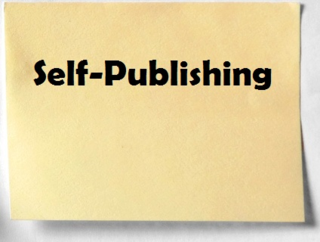 purchasing an ISBN, I’m always asked if I also want to purchase a barcode for my self-published book. Do I need to buy one?
purchasing an ISBN, I’m always asked if I also want to purchase a barcode for my self-published book. Do I need to buy one?
The answer generally is no. Most print-on-demand companies, such as CreateSpace, provide a barcode for free. About the only time you’d want to purchase a barcode is if you are plan to print the book at a place that does not offer a barcode (such as the local printshop) and will distribute the book solely by yourself.
Related articles:
g How to purchase an ISBN for your book
g Design a back cover that sells your book
Need an editor? Having your book, business document or academic paper proofread or edited before submitting it can prove invaluable. In an economic climate where you face heavy competition, your writing needs a second eye to give you the edge. Whether you come from a big city like Los Angeles, California, or a small town like Hell, Michigan, I can provide that second eye.
Amazon.com WidgetsRelated articles
 Let bookstore buyers select your cover for you
Let bookstore buyers select your cover for you



